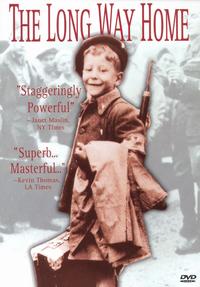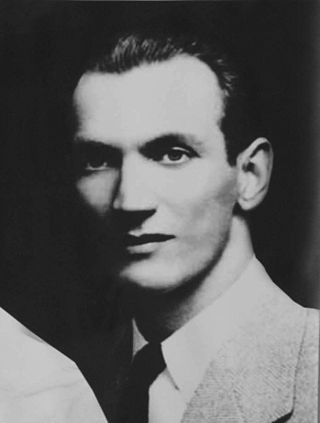
Jan Karski was a Polish soldier, resistance-fighter, and diplomat during World War II. He is known for having acted as a courier in 1940–1943 to the Polish government-in-exile and to Poland's Western Allies about the situation in German-occupied Poland. He reported about the state of Poland, its many competing resistance factions, and also about Germany's destruction of the Warsaw Ghetto and its operation of extermination camps on Polish soil that were murdering Jews, Poles, and others.
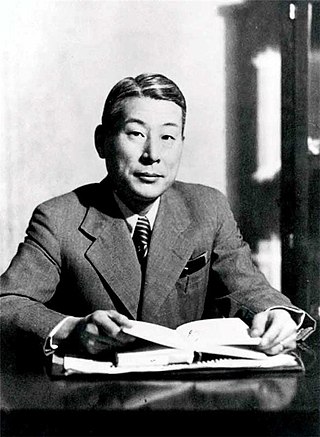
Chiune Sugihara was a Japanese diplomat who served as vice-consul for the Japanese Empire in Kaunas, Lithuania. During the Second World War, Sugihara helped thousands of Jews flee Europe by issuing transit visas to them so that they could travel through Japanese territory, risking his career and the lives of his family. The fleeing Jews were refugees from German-occupied Western Poland and Soviet-occupied Eastern Poland, as well as residents of Lithuania.

The Kindertransport was an organised rescue effort of children from Nazi-controlled territory that took place in 1938–1939 during the nine months prior to the outbreak of the Second World War. The United Kingdom took in nearly 10,000 children, most of them Jewish, from Germany, Austria, Czechoslovakia, Poland, and the Free City of Danzig. The children were placed in British foster homes, hostels, schools, and farms. Often they were the only members of their families who survived the Holocaust. The programme was supported, publicised, and encouraged by the British government, which waived the visa immigration requirements that were not within the ability of the British Jewish community to fulfil. The British government placed no numerical limit on the programme; it was the start of the Second World War that brought it to an end, by which time about 10,000 kindertransport children had been brought to the country.

MS St. Louis was a diesel-powered ocean liner built by the Bremer Vulkan shipyards in Bremen for Hamburg America Line (HAPAG). She was named after the city of St. Louis, Missouri. She was the sister ship of Milwaukee. St. Louis regularly sailed the trans-Atlantic route from Hamburg to Halifax, Nova Scotia, and New York City, and made cruises to the Canary Islands, Madeira, Spain; and Morocco. St. Louis was built for both transatlantic liner service and for leisure cruises.
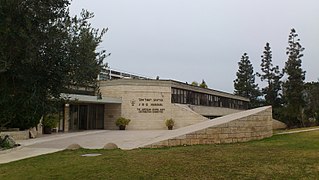
American Jewish Joint Distribution Committee, also known as Joint or JDC, is a Jewish relief organization based in New York City. Since 1914 the organisation has supported Jewish people living in Israel and throughout the world. The organization is active in more than 70 countries.

Bricha, also called the Bericha Movement, was the underground organized effort that helped Jewish Holocaust survivors escape Europe post-World War II to the British Mandate for Palestine in violation of the White Paper of 1939. It ended when Israel declared independence and annulled the White Paper.

Kedma is a 2002 Israeli film directed by Amos Gitai and starring Andrei Kashkar and Helena Yaralova. It was entered into the 2002 Cannes Film Festival.
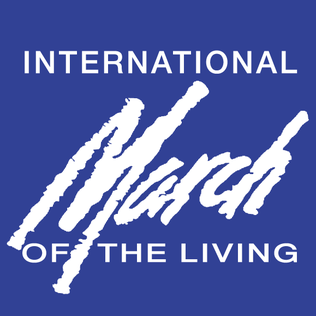
The March of the Living is an annual educational program which brings students from around the world to Poland, where they explore the remnants of the Holocaust. On Holocaust Memorial Day observed in the Jewish calendar, thousands of participants march silently from Auschwitz to Birkenau.
Sh'erit ha-Pletah (Hebrew: שארית הפליטה, romanized: Sh'erit ha-Pletah, meaning surviving remnant, and is a term from the Book of Ezra and 1 Chronicles is a Hebrew term for the more than 250,000 Jewish Holocaust survivors living in Displaced Persons camps after the end of the Holocaust and Second World War, and the organisations they created to act on their behalf with the Allied authorities. These were active between 27 May 1945 and 1950–51, when the last DP camps closed.
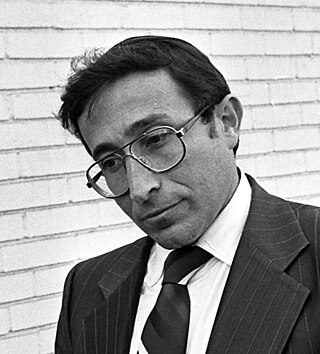
Marvin Hier is the dean and founder of the Simon Wiesenthal Center, its Museum of Tolerance and of Moriah, the center's film division. He has been a Track II diplomacy contributor to the genesis of the Abraham Accords.
Holocaust survivors are people who survived the Holocaust, defined as the persecution and attempted annihilation of the Jews by Nazi Germany and its allies before and during World War II in Europe and North Africa. There is no universally accepted definition of the term, and it has been applied variously to Jews who survived the war in German-occupied Europe or other Axis territories, as well as to those who fled to Allied and neutral countries before or during the war. In some cases, non-Jews who also experienced collective persecution under the Nazi regime are considered Holocaust survivors as well. The definition has evolved over time.

Ruth Gruber was an American journalist, photographer, writer, humanitarian, and United States government official.

The Central British Fund for World Jewish Relief, formerly Central British Fund for German Jewry, (CBF) which currently operates under the name World Jewish Relief (WJR), is a British charitable organisation and the main Jewish overseas aid organisation in the United Kingdom.

The Juggler is a 1953 drama film starring Kirk Douglas as a survivor of the Holocaust. The screenplay was adapted by Michael Blankfort from his novel of the same name. It was the first American feature film that was made in Israel.
Let My People Go: The Story of Israel is a 1965 American documentary film directed by Marshall Flaum. It was nominated for an Academy Award for Best Documentary Feature in 1965. Flaum also produced and wrote the documentary.
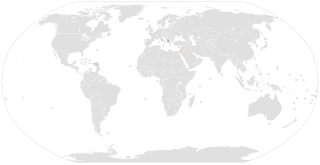
Albania has recognized Israel as a state since April 19, 1949. Diplomatic relations between the countries were established on August 19, 1991. Albania has an embassy in Tel Aviv and Israel has an embassy in Tirana.
In the 1948 Palestine war, more than 700,000 Palestinian Arabs – about half of Mandatory Palestine's predominantly Arab population – were expelled or fled from their homes, at first by Zionist paramilitaries, and after the establishment of Israel, by its military. The expulsion and flight was a central component of the fracturing, dispossession, and displacement of Palestinian society, known as the Nakba. Dozens of massacres targeting Arabs were conducted by Israeli military forces and between 400 and 600 Palestinian villages were destroyed. Village wells were poisoned in a biological warfare programme and properties were looted to prevent Palestinian refugees from returning. Other sites were subject to Hebraization of Palestinian place names.
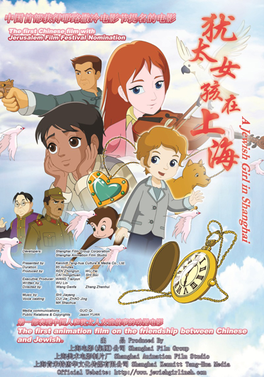
A Jewish Girl in Shanghai is a 2010 Chinese animated family film written by Wu Lin and based on his graphic novel of the same name. It is directed by Wang Genfa and Zhang Zhenhui, and voiced by Cui Jie, Zhao Jing and Ma Shaohua.
Moriah Films is the Jack and Pearl Resnick Film Division of the Simon Wiesenthal Center.
President Manuel L. Quezon admitted roughly 1,200–1,300 Jews fleeing from Nazi Germany, German-occupied Europe, and Shanghai in Japanese-occupied China to the Philippine Commonwealth from 1937 to 1941.
